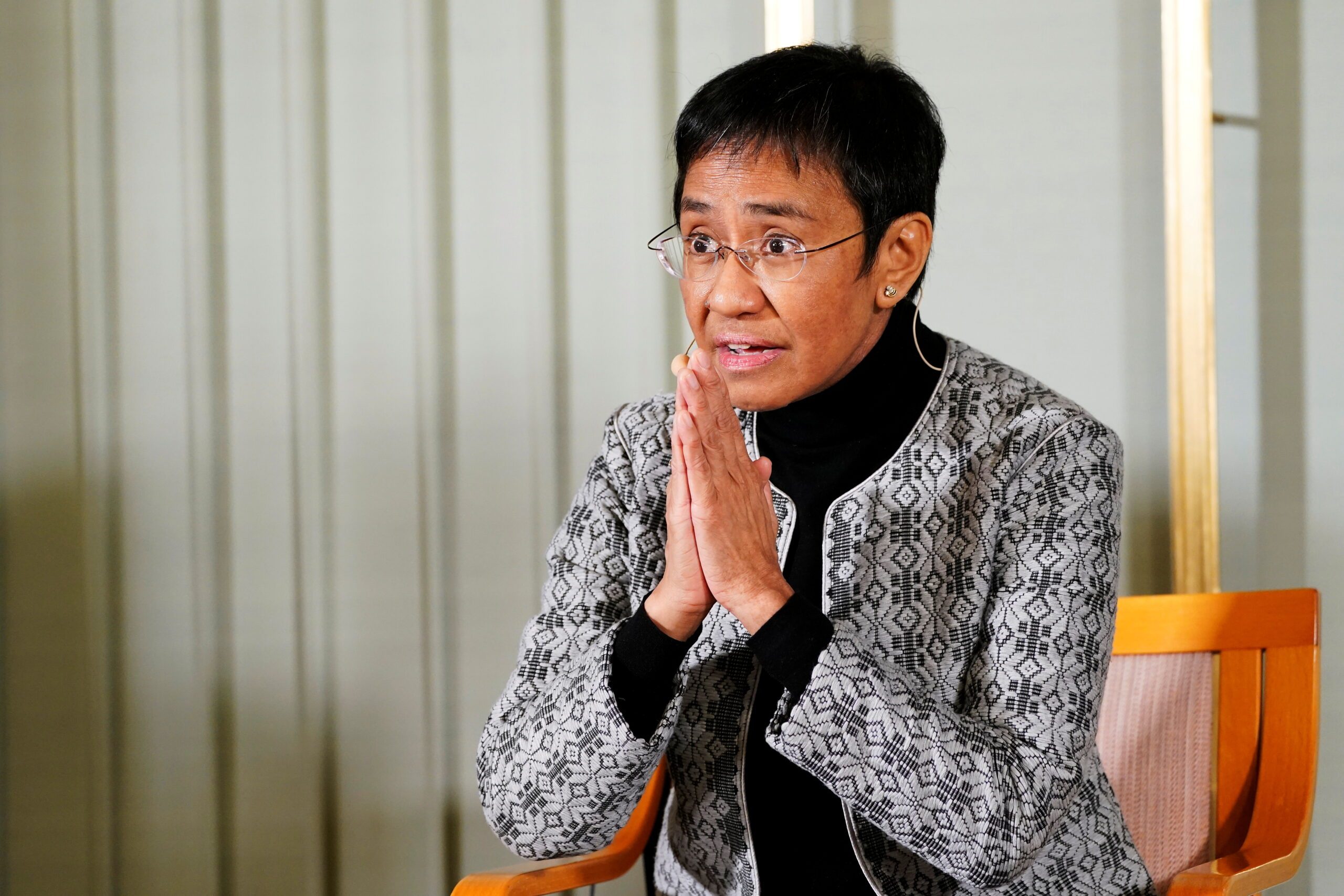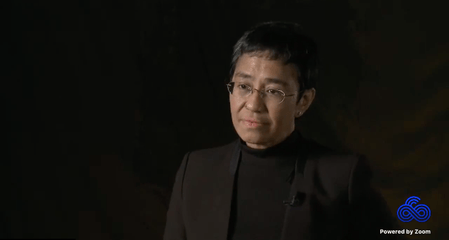SUMMARY
This is AI generated summarization, which may have errors. For context, always refer to the full article.


MANILA, Philippines – Nobel Peace Prize laureate and press freedom icon Maria Ressa asked Filipino senators to craft a law that would hold technology and social media giants accountable for lies they are allowing to be spread online.

The Rappler CEO was invited to speak about the disinformation networks plaguing democracies around the world – including the Philippines – during the third hearing of the Senate committee on constitutional amendments and revision of codes on Wednesday, January 12.
Panel chairman and Senator Kiko Pangilinan, and Senate Minority Leader Frank Drilon – opposition senators who are primarily targeted by trolls and government propagandists – asked Ressa on what can be done to stop the spread of lies on social media, yet still balance that with the need to protect free speech.
Ressa said one “quick” solution is to draft legislation that would make social media platforms liable for what they are allowing to be proliferated online.
She said this is possible in the Philippines but not in the United States, where Section 230 of its Communications Decency Act shields internet services providers, social media giants, and website owners from liability over the content posted by another person.
“In our country, what we can we do? And in that case, we don’t have Section 230. So the quick solution would be to actually hold the platforms accountable for what they spread, what they allow to spread. And when you do that, I bet you that you would automatically see a shrinking of information operations,” said Ressa.

The Nobel Peace Prize winner has long been arguing that disinformation in social media platforms has caused divisiveness and cultivated the worst of human behavior across the world.
She earlier said populist digital authoritarians have used this infodemic – a portmanteau of “information” and “epidemic” – to perpetuate their power.
Ressa said this is evident in the Philippines, where the algorithms helped amplify President Rodrigo Duterte’s “us vs. them” rhetoric to further divide Filipinos in the past five years.
“Facebook is now the world’s largest distributor of news and yet studies have shown that lies laced with anger and hate spread faster and further than the really boring fasts. So the reality is, the platforms that deliver the facts to you are biased against facts, they are biased against journalists. They are, by design, dividing us and radicalizing us,” she said.
Freedom of speech vs freedom of distribution
Ressa told the Philippine Senate committee that the problem here isn’t freedom of speech, but the freedom of distribution that platforms are now abusing. This was precisely why her suggestion is for legislation to focus on preventing these algorithms to be used by disinformation peddlers.
“So where are you going to intervene? Don’t intervene in the content because then, you can actually be accused of censorship. But if you go to the algorithms of amplification… Because everyone can say what they think, but what your neighbor said never reaches broadcast scale until today, because there have been no guardrails on the distribution of lies,” said Ressa.

During the hearing, Drilon contemplated the possibility of treating social media platforms like publishers, as traditional media in the Philippines are regulated by several laws and policies to help ensure they are following journalism ethics and standards. There are currently no similar safeguards covering social media.
“In traditional media, the publisher is responsible because theoretically, they have control over the media outlets, particularly newspapers, radio, etcetera. But in social media, the platform owners are not held responsible they are not considered as publishers,” said the veteran lawmaker.
In the previous hearing, Drilon also sought guidance regarding the creation of a law that would compel social media platforms to reveal the identity of trolls. – Rappler.com
Add a comment
How does this make you feel?






![[OPINYON] Tungkol sa naging viral na social media conjecture](https://www.rappler.com/tachyon/2024/07/thought-leaders-conjecture-07262024.jpg?resize=257%2C257&crop_strategy=attention)
![[DECODED] The Philippines and Brazil have a lot in common. Online toxicity is one.](https://www.rappler.com/tachyon/2024/07/misogyny-tech-carousel-revised-decoded-july-2024.jpg?resize=257%2C257&crop_strategy=attention)



There are no comments yet. Add your comment to start the conversation.